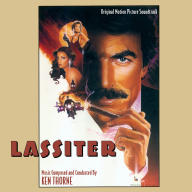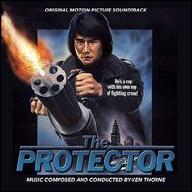Thorne's breakthrough came about four years later, as a result of the ill feeling that had arisen between Lester and Beatles producer George Martin during the making of A Hard Day's Night (1964). The two had clashed, in terms of musical sensibilities, during the production of that movie, and rather than use Martin for the incidental music for the follow-up film, Help!, Lester chose Thorne to compose that portion of the score. His resulting music for the movie -- which mostly consisted of re-arrangements and adaptations of tunes by the Beatles and Richard Wagner, heard in portions of the movie in which new Beatles songs weren't featured -- also ended up getting unexpected exposure in America. Whereas in England, the only Help! soundtrack had been the Beatles LP featuring the half-dozen new songs from the movie, in the United States, Capitol Records chose to space out those Beatles songs between large portions of Thorne's music on the American soundtrack album. Thorne next turned up on the soundtrack to A Funny Thing Happened on the Way to the Forum (1966), Richard Lester's adaptation of Stephen Sondheim's hit stage farce -- and this time, the result was an Academy Award for Thorne as music director of the film.
Thereafter, Thorne worked on major feature films on both sides of the Atlantic. In addition to composing numerous film and television soundtracks, Thorne was also a highly regarded arranger and orchestrator -- if Richard Lester regarded him as his composer-of-choice across the '60s, '70s, and '80s, for a time in the '70s John Barry used Thorne as his orchestrator and arranger on various scores. Thorne's credits include Inspector Clouseau (1967), starring Alan Arkin; They Might Be Giants (1971) (as orchestrator of Barry‘s music), with George C. Scott and Joanne Woodward; the western Hannie Caulder, starring Raquel Welch and Robert Culp; and the Richard Lester-directed features Superman II and Superman III, for which his job was to re-orchestrate and re-shape John Williams‘ theme material from the first Superman movie in the cycle. Thorne was also responsible for composing the incidental music on the Monkees feature film Head (1968). As a conductor, Thorne also occasionally released pop-instrumental and easy listening recordings, offering more traditional dance tunes, principally during the '60s, when the marketplace for such records was booming. ~ Bruce Eder, Rovi













